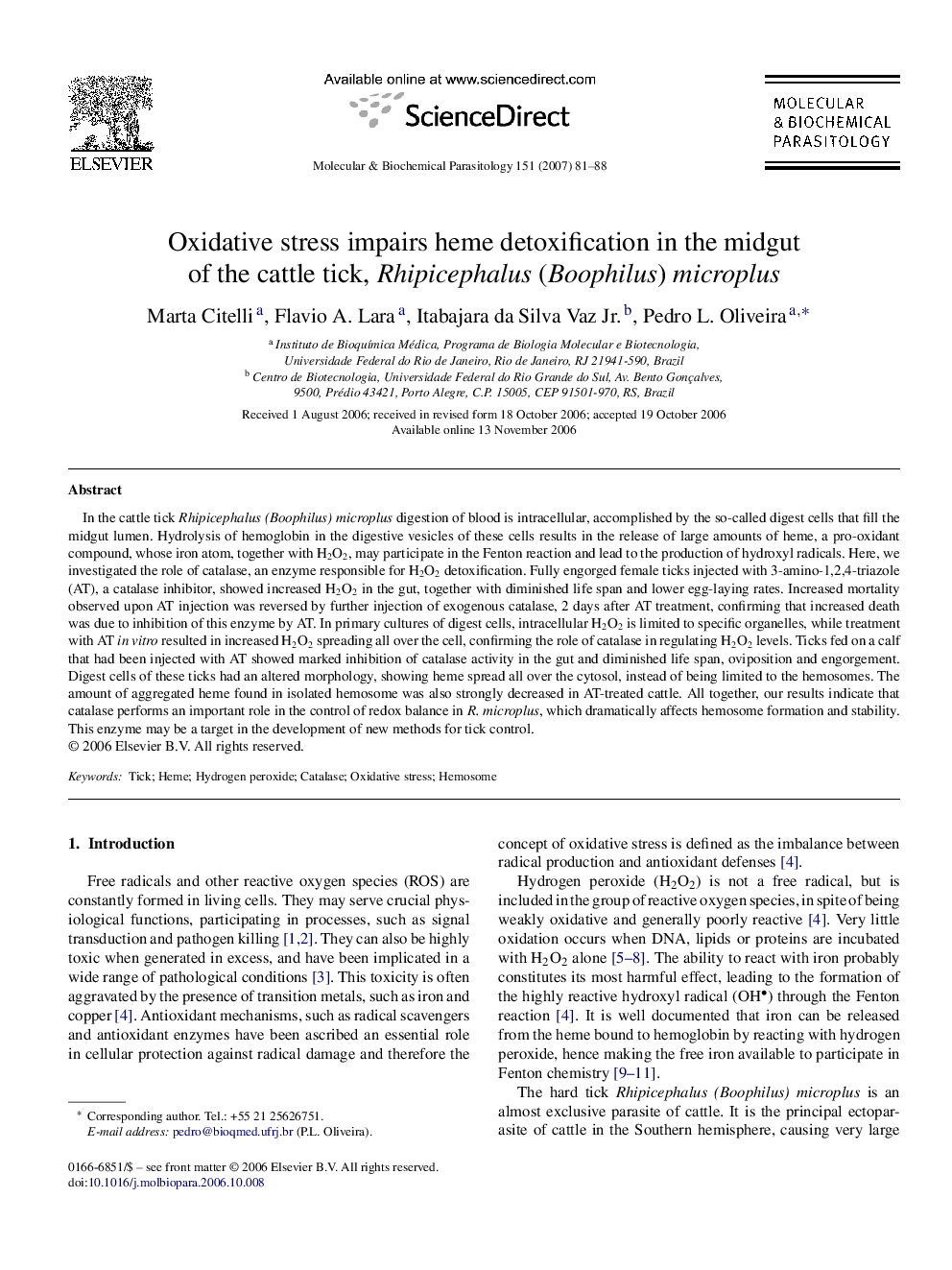| Article ID | Journal | Published Year | Pages | File Type |
|---|---|---|---|---|
| 5916213 | Molecular and Biochemical Parasitology | 2007 | 8 Pages |
Abstract
In the cattle tick Rhipicephalus (Boophilus) microplus digestion of blood is intracellular, accomplished by the so-called digest cells that fill the midgut lumen. Hydrolysis of hemoglobin in the digestive vesicles of these cells results in the release of large amounts of heme, a pro-oxidant compound, whose iron atom, together with H2O2, may participate in the Fenton reaction and lead to the production of hydroxyl radicals. Here, we investigated the role of catalase, an enzyme responsible for H2O2 detoxification. Fully engorged female ticks injected with 3-amino-1,2,4-triazole (AT), a catalase inhibitor, showed increased H2O2 in the gut, together with diminished life span and lower egg-laying rates. Increased mortality observed upon AT injection was reversed by further injection of exogenous catalase, 2 days after AT treatment, confirming that increased death was due to inhibition of this enzyme by AT. In primary cultures of digest cells, intracellular H2O2 is limited to specific organelles, while treatment with AT in vitro resulted in increased H2O2 spreading all over the cell, confirming the role of catalase in regulating H2O2 levels. Ticks fed on a calf that had been injected with AT showed marked inhibition of catalase activity in the gut and diminished life span, oviposition and engorgement. Digest cells of these ticks had an altered morphology, showing heme spread all over the cytosol, instead of being limited to the hemosomes. The amount of aggregated heme found in isolated hemosome was also strongly decreased in AT-treated cattle. All together, our results indicate that catalase performs an important role in the control of redox balance in R. microplus, which dramatically affects hemosome formation and stability. This enzyme may be a target in the development of new methods for tick control.
Related Topics
Life Sciences
Biochemistry, Genetics and Molecular Biology
Molecular Biology
Authors
Marta Citelli, Flavio A. Lara, Itabajara da Silva Jr., Pedro L. Oliveira,
